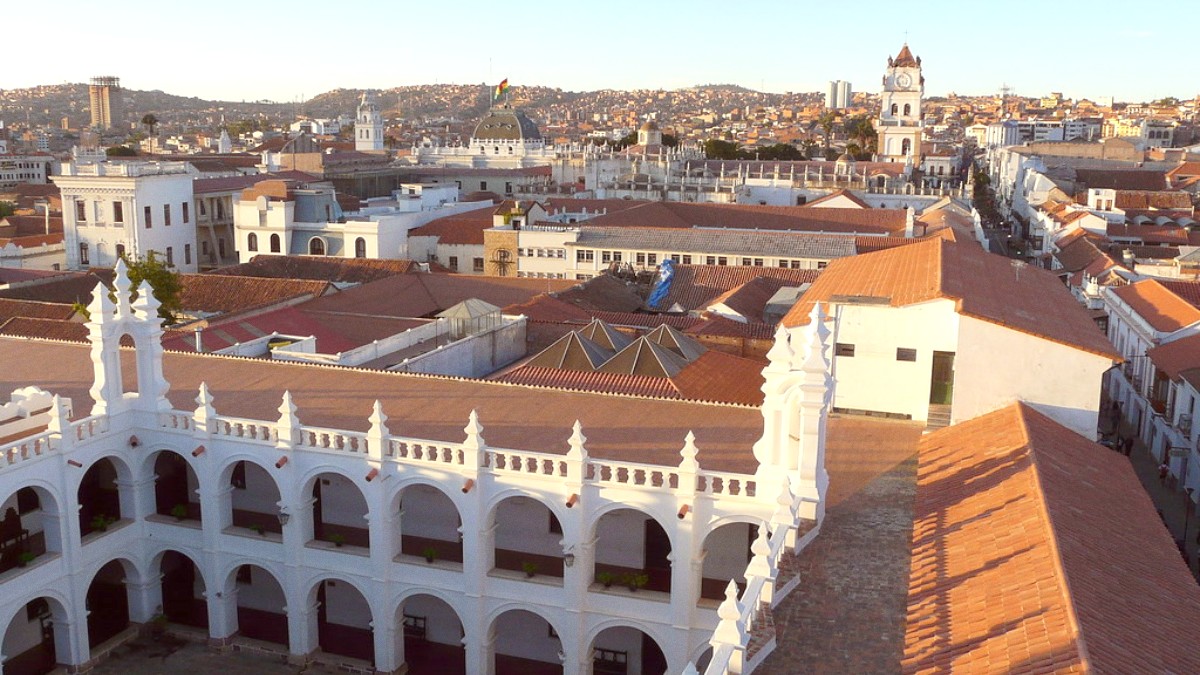
The Southwest, Bolivia
Travelers often find themselves lingering here longer than planned, captivated by the city's peaceful rhythm and genuine warmth. It presents as a place for history enthusiasts, cultural explorers, and those seeking a slower pace of travel amidst stunning Andean scenery. Prepare to be charmed by Sucre, a city that truly lives up to its name as a jewel of the continent.
Sucre’s history is rich and deeply woven into the fabric of Bolivia's independence. Founded on April 16, 1538, by Pedro Anzures, Marqués de Campo Redondo, the city initially received the name Ciudad de la Plata de la Nueva Toledo. This name stemmed from the immense mineral wealth discovered in the nearby Potosí mines, which brought vast fortunes and colonial power to the region. The city quickly grew into a cultural, religious, and legal hub for the Spanish Crown in South America. Its prominence received recognition in 1839 when it was renamed Sucre, honoring Antonio José de Sucre, a pivotal revolutionary leader and the first President of Bolivia.
Here, on May 25, 1809, the initial freedom declaration in what would become Bolivia resonated, coming before various independence movements on the continent. This event, known as the "Chuquisaca Revolution," marked the start of a long struggle against Spanish rule. The Casa de la Libertad, or House of Liberty, located on the city’s central Plaza 25 de Mayo, is the hallowed site where Bolivia’s Declaration of Independence received signatures on August 6, 1825. This building continues as a revered national monument, displaying artifacts and documents that recount the nation’s birth.
The city is a population of approximately 300,000 residents, based on recent estimates; its lively yet unhurried atmosphere is a result. Spanish serves as the official language, spoken widely. This linguistic variety mirrors Bolivia’s multicultural identity.
The city’s economy mainly relies on agriculture, services, and tourism. The service sector receives a boost from government institutions, especially the Supreme Court of Justice, and several universities that attract students from across Bolivia and beyond. These educational institutions give Sucre a youthful energy and contribute to its intellectual atmosphere.
Approx. 300,000 residents
Spanish
Agriculture, services, tourism
"La Ciudad Blanca"
Welcoming base, less intense than La Paz
Tourism represents a steadily growing portion of the local economy. Visitors are drawn to Sucre's historical charm, pleasant climate, and reputation as a safe and walkable city. Sucre serves as a welcoming base for travelers, suited for language learners with numerous Spanish schools offering immersive programs.
From a practical standpoint, Sucre holds all the amenities a traveler needs: well-stocked markets, diverse dining options, and a range of accommodation choices.
The local transport system presents easy navigation, mainly relying on affordable minibuses and taxis.
The blend of historical gravity with relaxed daily life makes Sucre a memorable destination. Travelers engage with authentic Bolivian culture in a comfortable and approachable setting. This combination of historical depth, cultural richness, and modern convenience makes Sucre a standout destination in the southwest of Bolivia, a place where you can easily spend days exploring its beauty and learning about its enduring heritage.
Sucre, a city of contrasts and charm, presents distinct experiences across its varied seasons.
Sunny days prevail, making this period ideal for outdoor activities and photography. Nights can be cool, so warm layers find use. This aligns with pleasant conditions across most of Bolivia and often features local festivals.
Temperatures are slightly warmer, with frequent afternoon showers. Fewer tourists mean lower prices for accommodations and some tours. If avoiding crowds pleases you, this season presents good opportunities.
Good weather often prevails, with fewer crowds than the high season. Flight and accommodation prices tend to be lower. These months represent transition periods, blending benefits from both dry and wet seasons.
Sucre maintains a subtropical highland climate, often described as mild, spring-like temperatures year-round. Temperatures generally range between a comfortable 15°C and 22°C (59°F to 72°F).
Sucre does not experience monsoons or hurricanes. Extreme temperatures are rare due to its moderate highland climate.